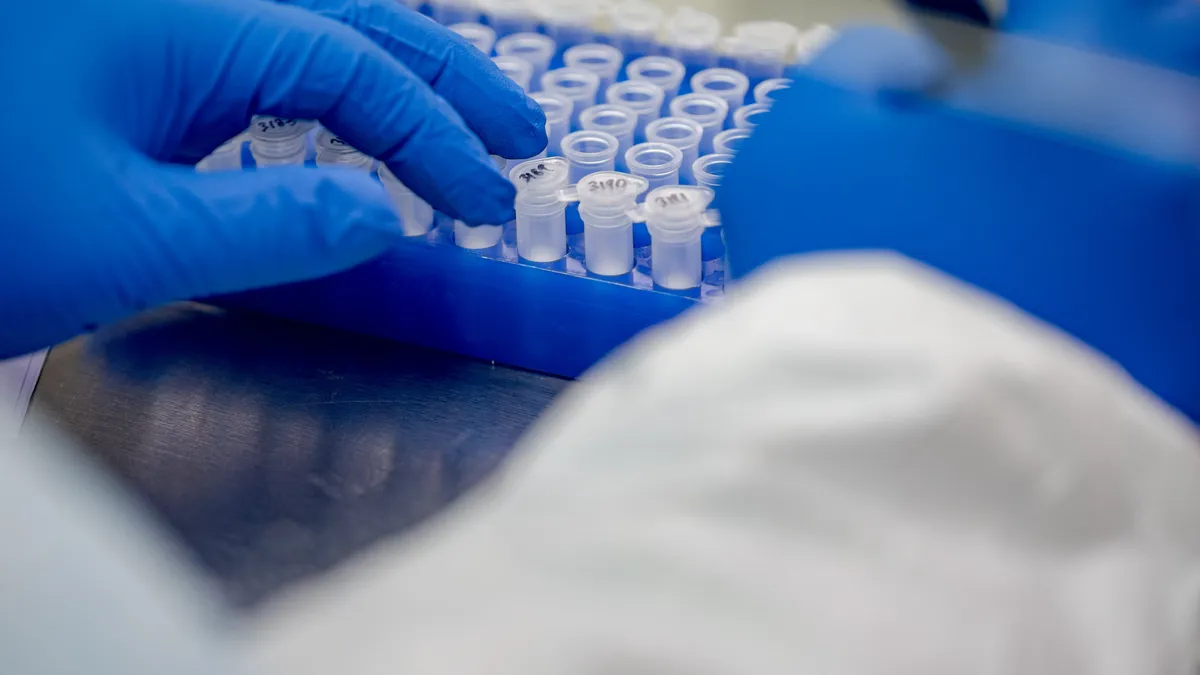The U.S. has in recent weeks had no choice but to drop everything to fight the coronavirus, and entrenched medtechs, smaller players and heavyweight manufacturers outside the industry have pivoted into crisis-response mode.
Demand for diagnostic tests, respiratory devices and personal protective equipment is swelling. Speeding that crush of products to market, both by securing government funding and ensuring compliance with rapidly evolving emergency guidance, is an urgent priority for regulators and the regulated alike — many of whom don't necessarily have prior experience working on emergency use authorization requests.
A range of companies are well placed to contribute to the pandemic response efforts, said Aaron Josephson, a senior director at ML Strategies and former senior policy advisor in FDA's Center for Devices and Radiological Health.
"In some cases, it's just making some adjustments to their current processes, and in other cases, I'm seeing companies say 'we're going to put our main focus on hold and and turn our attention to this.'"
All the while, FDA has been churning out policy updates.
Prior to an official HHS declaration of a public health emergency Jan. 31, the agency communicated about collaborating with diagnostic developers potentially interested in pursuing a not-yet-available emergency use authorization for tests to detect what was then referred to as 'nCoV-2019.'
Since then, FDA has paused most foreign and domestic inspections, weighed in on how to carry out clinical trials and adverse event reporting during the outbreak, and one by one issued emergency guidance lowering barriers to use for diagnostic tests, remote monitoring devices, face masks and respirators, ventilators and other respiratory devices and disinfectant devices.
"I've seen FDA do things in this space that I couldn't believe," said Dennis Gucciardo, a partner at Morgan Lewis.
"The fact that FDA is willing to allow a company to distribute a diagnostic test that hasn't been fully reviewed and approved by FDA is something that is kind of mind-numbing in the larger scheme, but clearly the public benefit outweighs the potential risks."
Compared to FDA's more standard "iceberg" type of movements, the pace at which the agency has been sharing new thinking requires a different level of adeptness, Gucciardo said.
"In this current environment, you kind of have to throw out the current rules of the game because FDA is moving at hyper-lightspeed. Advice that I may have given in the morning under the current FDA regime, by the afternoon it could have been expired because FDA has issued an enforcement policy."
Beyond COVID-19 tests and equipment
Regardless of whether a medtech aims to get directly involved in coronavirus response, changes at the agency as it allocates resources to pandemic response and aims to keep staff safe will inevitably affect other device review processes in several ways.
For starters, the agency is dealing with realities like having to move meetings with industry to teleconferences and simply making the transition like so many other American workplaces to having most of its staff work from home.
"Just as a society in general, we have to expect that there's going to be a slowdown because everyone's working remotely," Gucciardo said.
Social distancing is disrupting clinical trials timelines and other planned testing, requiring heightened communication from device makers and flexibility from the agency.
Public workshops and advisory committee meetings, including those regarding premarket approval submissions like TransMedics' heart transplant preservation system, are being pushed back.
Particularly for companies that had a PMA submission in the pipeline, the postponement to most inspections for the time being is likely to impede the FDA's ability to carry out a pre-approval inspection of a facility that manufactures critical components. That hangup could result in delayed launches for high-risk products, said Sonali Gunawardhana, of counsel at Shook, Hardy & Bacon and a former regulatory counsel in CDRH.
It's an issue that has the potential to cut across therapeutic areas and device types. "I think that this is discriminating equally," said Mike Heyl, a partner at Hogan Lovells.
However, uneven pressures on various review groups' staff may be a point of differentiation, Heyl said. Immunology device makers or in vitro diagnostic manufacturers with pending marketing applications, for example, could see delays as more staff are pulled into coronavirus-related product reviews.
"A lot of review teams might have gotten certain people pulled to work on these emergency use authorizations even though they're not traditionally part of the review team that reviews those types of products," Gunawardhana said. "I think most manufacturers know that things that they were relying on may not come in the timeframe they expected, but I think the agency is probably doing their best to meet all those other obligations."
It's possible the uptick in EUA work could be partly countered by a lower rate of other new premarket submissions as manufacturers consider economic uncertainty, Gucciardo said. And FDA will still be aiming to hue to review timelines set forth by the medical device user fee law, particularly as MDUFA reauthorization negotiations loom.
A public meeting on recommendations for the reauthorization, now happening as a webcast, was rescheduled this week for May 5.

















